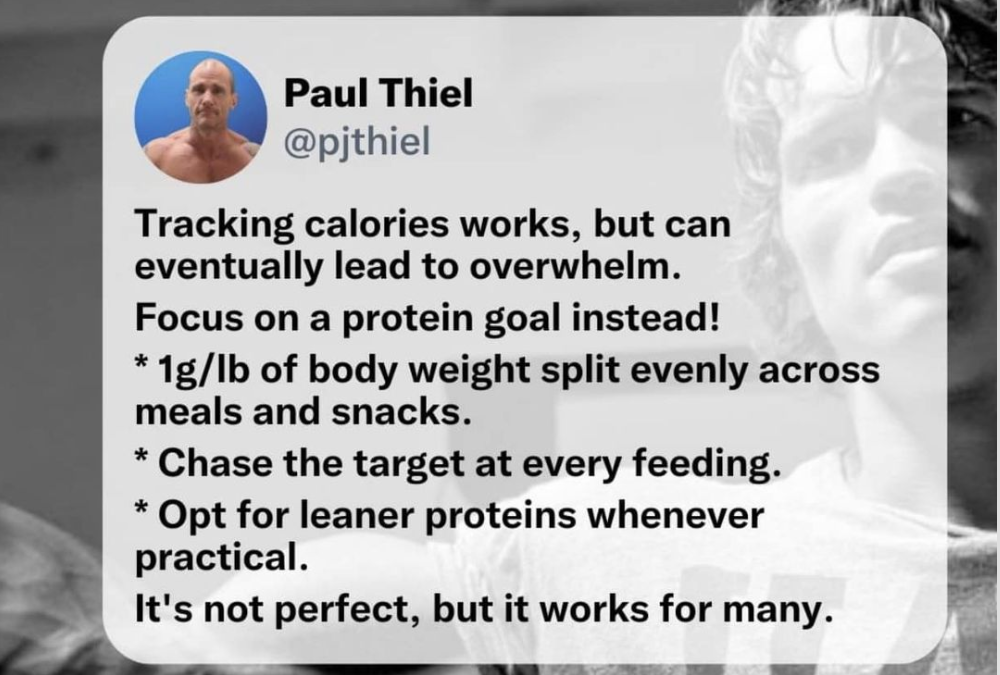Overwhelm is the killer of progress—especially with diet.
And nothing adds more complexity and sucks the joy out of eating faster than tracking, particularly when you’re all-in on the scale.
So how do you positively influence calories and improve your macros while keeping the tracking overhead as low as possible?
TRACK PROTEIN ONLY.
Now, if you are sitting there with your hand up, mumbling, “Calories are king,” I am with you.
But if calories are king, protein is queen.
And if being married has taught me anything, the queen makes all the rules.
Here’s how it works:
1. Set a daily protein goal.
2. Break that goal down across your meals and snacks.
3. Prioritize lean protein with every meal/snack to hit the target.
One gram per pound of body weight is a solid starting point for many. One gram per pound of TARGET body weight works better for those on the softer side of “husky”.
So if you weigh 200 lbs, that’s a daily goal of 200g of protein.
And if you’re a three-square and two snacks kind of person, that’s roughly 50g protein for breakfast, lunch and dinner, and 25g per snack.
Just prioritize hitting that protein target for each meal and snack, and opt for leaner proteins whenever practical.
This approach works well for a few reasons:
* More often than not, you can continue eating how you typically eat. Just make tactical substitutions for primary ingredients. e.g. “bacon and eggs” becomes “6-egg white and 2-egg scramble with Canadian bacon.”
* Emphasizing lean protein shifts the macros of every meal and snack north of 30% and even as high as 90%.
* Higher protein typically means lower carbs and less fat. It’s also incredibly satiating for many people and helps to control hunger.
* Protein has a higher Thermic Effect [of] Food (TEF)—meaning more calories are expended digesting protein than with carbs or fats.
Of course, if you eat in a calorie surplus, hitting a protein target without making ANY other changes won’t magically kick-start fat loss.
But frankly, that rarely happens.
Protein is incredibly satiating, and there is less room for everything else.
It’s certainly a LOT more effective than quitting your diet altogether.
– Bryan

